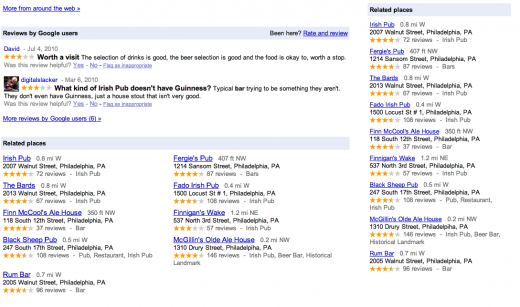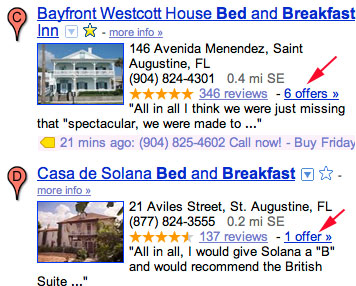When does the word
active simply not mean
active in Google Places? When you are in Google Places Purgatory.

Wikipedia: “purgatory”, derived through Anglo and Old French from the Latin word purgatorium.[8] has come to refer also to a wide range of historical and modern conceptions of postmortem suffering short of everlasting damnation,[1] and is used, in a non-specific sense, to mean any place or condition of suffering or torment, especially one that is temporary.[9]
Google has always imposed neo-religious judgements on users of its products. Google Places is no exception and in fact seems to raise these judgements to a new level of a refined, modern theology.
Rejections are a major sin but from which one can reclaim oneself anonymously via algo with a corrected behavior.
Pending is like being at church on Sunday where the line to the confessional stretches interminably before you and you have to use the restroom but are afraid that you will loose your place. Sometimes it seems that your booth gets closed before all the cases have been reviewed and the process needs to resume next Sunday. Do not confuse this state with purgatory although it might seem like it.
Suspension is roughly akin to excommunication although with a thorough confession and plenty of time, a lister can come back into Google’s graces.
The “Term not Allowed“ word filter reflects a minor sin of thought, where just by correcting your language you can be readmitted to the fold. It mirrors formal religion’s attempt to control behaviors through imposition of minor dogmas in the hopes that compliance with larger scale issues will flow naturally from the initial compliance.
Like in many religions, the logic of these minor dogmas is often not clear. In a Google Places listing, the words Fountain, domination and stripper are banned along with sex and erection regardless of context. These words require priestly interventions to have their flags cleared but fortunately require no mea culpas or other ritualistic penitence.
The ban on the word Google must be roughly akin to the biblical ban on speaking the word Yaweh. How the word locksmith fits into this scheme is not totally clear although the common first letter with the word Lucifer comes to mind.
Clearly in this regard Google is not much different than the grade school nun or for that matter Steve Jobs. Although at least with Jobs, you can have a high degree of confidence that in the end you will not be pummeled with porn. With Google, there are no such guarantees.
But at least the above fallen states are explicit and there is (usually) a clear path to regain acceptance amongst the flock.
Google Places though, in its quasi religious secrecy, has always imposed penalties which are not flagged and only known to the initiates. These are punitive measures that are slightly ambiguous and fall into a nether world of secret handshakes and cabalistic knowledge. Often unstated, never obvious to the novice, they offer no clear way out.
These fall into the category of punishment I call Google Places Purgatory (GPP).
The newest manifestation of this condition can been seen in a Google Places Dashboard listing that has been fully approved and says active but which does not show in Places. It simply can not be found, not by direct name search, not by phone number search….. it is truly invisible.
This is despite Google current definition of active:
| Active |
This means that your listing is publicly available by searching Google. If you’re unable to find your business right away, try performing a search for [ business name in zip code ] on maps.google.com or click the See my listing on Google Maps link to view your Place Page. |
The other indicators that you have entered the new purgatory is that the normal link to See your listing on Google Maps is not visible in the dashboard and there are no statitstics. Reports of this condition have been creeping into the Google forums for the past several months (here, here, here) and the path to relieve the hopefully temporary suffering is not yet fully clear.

Be forewarned, say your prayers at bedtime. They may not help relieve your punishment but they will let you sleep peacefully, for a bit.




